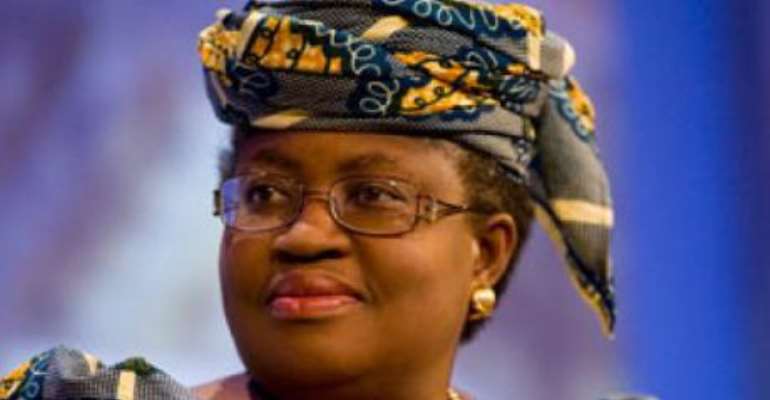EXPERTS BACK OKONJO-IWEALA ON ECONOMIC RECESSION

Frontline economic analysts agree with Ngozi-Oknojo-Iweala, Finance Minister and Co-ordinating Minister of the Economy that at the rate oil prices are decelerating, the country's economy could actually be in danger of recession.
An economy can be said to be in recession, if it experiences retardation in growth in two subsequent quarters.
Their fears stem from the fact that Nigeria relies heavily on income from crude oil exports. Samir Gadio, analyst with Standard Bank, London, responding to Leadership questions agrees that this is a concern because oil accounts for 95 per cent of exports and between 75 per cent and 80 per cent of government revenue in the country.
Razia Khan, Regional Head of Research, Africa Global Research, Standard Chartered Bank, London told Leadership yesterday that fears of a cyclical slowdown in the Nigerian economy are now more pronounced. She referred to the National Bureau of Statistics (NBS) data which states that from the GDP growth slowed to 6.17 per cent year-on-year (y/y) in the first quarter of 2012 from 7.68 per cent in fourth quarter- 2011 and 7.13 per cent in first quarter of 2011.
The impact on disposable income spending of the partial removal of the fuel subsidy may have been partly to blame, with Nigeria's Fast Moving Consumer Goods (FMCG) sector showing an early response to the slowdown. Anecdotal evidence also points to the deteriorating security situation in the north is having more of an impact on growth', said Khan.
Former Director of Research and Statistics, Central Bank of Nigeria, Dr Okwu Joseph Nnanna said the Minister's reference to the likelihood of global recession and its impact on our economy are not speculative, 'but I doubt if the impact will be very severe.'
According to him, Nigeria exports basically crude oil to the West and the price of our crude is hovering around $90-$100 per barell, which is not too bad, provided the revenue is optimally utilised for the benefit of the economy.
Bismarck Rewane, Chief Executive officer of Financial Derivatives said if oil prices slide to $90 per barrel, income from crude oil could slump to $3.4 billion a month from the current $5.5 billion, over 38 per cent fall.
Wale Abe, chief executive of the Financial Market Dealers Association of Nigeria (FMDA) said the finance minister was clearly stating the obvious.
According to him, since Nigeria relies heavily on income from crude oil, sharp fall in oil prices is danger signal for the economy.
Abe said he hoped the government would listen and adjust appropriately.
